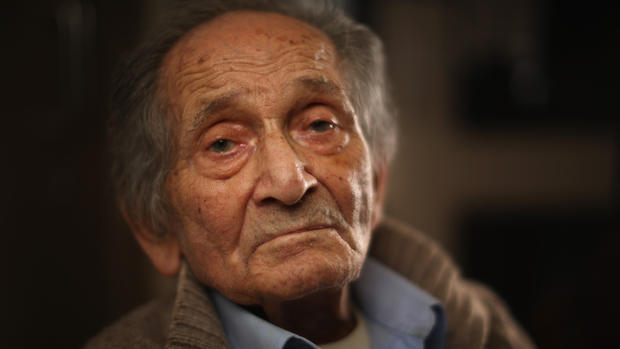
Germany election results fuel fear of far-right AfD’s rise in the east: “I know what this can all lead to”
Berlin — Nicki Kämpf watched her daughter toddle across the sand in a Berlin playground and wondered whether she and her wife should move their 1 1/2-year-old west, after Alternative for Germany became the first far-right party to win a state election in post-World War II Germany. Kämpf, 29, and her wife discussed a backup plan as Sunday’s election results came in. They’re concerned that a gay couple and their child might not be safe in the future if parties like Alternative for Germany, or AfD, gain more power in the formerly communist and less prosperous eastern states.
Even though they live in the liberal city of Berlin, Kämpf was scared the far-right’s power could spread. She’s especially worried because the paperwork to formally adopt her daughter is still pending — and could be for another year or more.
“I don’t think I would be able to adopt her if they’re in power,” Kämpf told The Associated Press on Monday. “I don’t want to bring her up in a hostile environment.”
The couple talked about a possible move west to Cologne — “people there are really open-minded” — but Kämpf is reluctant to take their daughter far from the toddler’s 91-year-old great-great-grandmother and other family in Thuringia and neighboring Saxony.
Kristallnacht — the “Night of Broken Glass” — when Nazis terrorized Jews throughout Germany and Austria.
Gudrun Pfeifer and Ursula Klute, two retirees from the northwest city of Osnabrueck who are visiting Berlin this week, said Sunday’s vote also brought back grim memories from their early childhood days during and after World War II.
“I know what this can all lead to,” Pfeifer, 83, said Monday as her voice broke, recalling how her family was separated during the last months of the war and beyond. She was stranded in Berlin for more than a year.
“The city was in ruins, we were all starving. I was very ill — my sister thought I was going to die,” Pfeifer added.
Auschwitz survivors tell their story 70 years later 27 photos
Thorsten Faas, a political scientist from Berlin’s Free University, called AfD’s popularity for younger voters “very worrying.” In Thuringia, 38% of people aged between 18-24 gave their vote to the far-right party — compared to 33% overall, according to public broadcaster ARD’s Tagesschau election analysis.
“These first voting experiences are very formative and you can assume that this will also affect future voting decisions of this generation,” Faas said.
Klute, 78, also said she was distressed by AfD’s successes among the younger population.
“People always forget the lessons from history,” she said.
Source: cbsnews.com